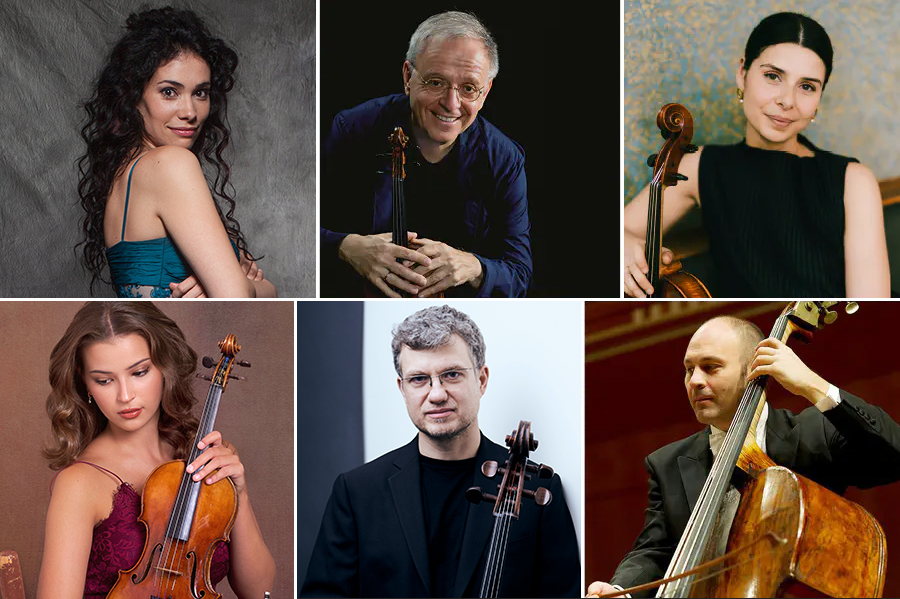Garlitsky, Markova, Canpolat, Somov, Naydenov, Tzanova

THE NIGHT OF ALLEGRA
Boris Garlitsky’s immense charisma leads Allegra’s stars in a concert dedicated to Schubert and Mendelssohn. Having started his journey by winning the Paganini Competition, he has performed on the world’s biggest stages alongside musicians such as Pinchas Zukerman, Gidon Kremer, Martha Argerich, Anne-Sophie Mutter, Maria-João Pires and many more. An inspiring teacher and the soul of the Allegra Academy, Prof. Garlitsky will be partnered on stage with Öykü Campolat-Rast (viola) and Alexander Somov (cello), both brilliant musicians at the apogee of their careers. The “crème de la crème” line-up would not be complete without Allegra’s founder and artistic director, Petar Naydenov, solo double bassist of the Lucerne Symphony Orchestra. The young Bulgarian violin star Lora Markova and the talented pianist Nadezhda Tsanova complete the musical constellation. The romantic programme, including some of the most cherished pages from the works of Mendelssohn and Schubert - Three Pieces for String Quartet and the famous “Trout” Quintet, promises to make the “Night of Allegra” a night to remember!
Performers:
Boris Garlitsky - violin
Lora Markova - violin
Öykü Canpolat-Rast - viola
Alexander Somov - cello
Petar Naydenov - double bass
Nadezhda Tzanova - piano
Öykü Canpolat-Rast - viola
Alexander Somov - cello
Petar Naydenov - double bass
Nadezhda Tzanova - piano
Petar Naydenov - double bass
Nadezhda Tzanova - piano
Program:
Felix Mendelssohn Bartholdy (1809 - 1847)
Three pieces for string quartet, Op. 81
Franz Schubert (1797 - 1828)
Piano Quintet (Trout Quintet ) in A major, D. 667
Tickets:
30 / 40 / 50 lv.
Buy ticketsDuration:
60 min
Alternative
Tickets can be purchased at the Bulgaria Hall box office and in the eventim.bg network